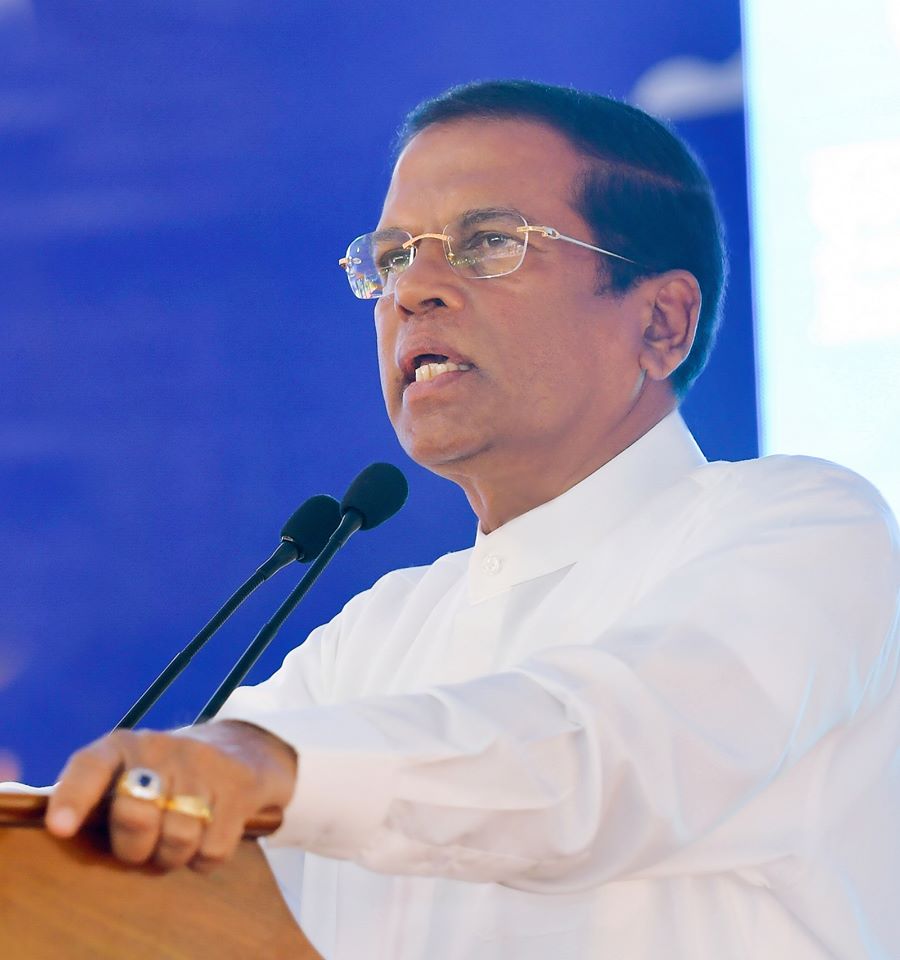A Brief Colonial History Of Ceylon(SriLanka)
Sri Lanka: One Island Two Nations
A Brief Colonial History Of Ceylon(SriLanka)
Sri Lanka: One Island Two Nations
(Full Story)
Search This Blog
Back to 500BC.
==========================
Thiranjala Weerasinghe sj.- One Island Two Nations
?????????????????????????????????????????????????Saturday, March 16, 2019
The Head Of State Of A Country Of Lies & Damn Lies

 We are extremely disappointed, although not surprised by The President’s endorsement of corporal punishment. As
the Head of State, The President is responsible for the welfare of all
citizens of mother Lanka. Article 11 of the Constitution states ‘No
person shall be subjected to torture or to cruel, inhuman or degrading
treatment or punishment’.
We are extremely disappointed, although not surprised by The President’s endorsement of corporal punishment. As
the Head of State, The President is responsible for the welfare of all
citizens of mother Lanka. Article 11 of the Constitution states ‘No
person shall be subjected to torture or to cruel, inhuman or degrading
treatment or punishment’.
But how can we expect a man who violated the constitution just three
months ago to honor the commitment he made to our younger citizens when
he endorsed the ‘Pentagon Proposal’, the blue print of the National
Action Plan to End Corporal Punishment and agreed to work towards providing a happier and safer learning environment for all children on 30th September
2018 at ‘Walk for Real Change’, organized by Stop Child Cruelty, the
ONLY civil society organization committed and recognized internationally
by Global Initiative to End All Corporal Punishment.
The United Nations Committee on the Rights of the Child (UNCRC), to
which Sri Lanka is a signatory since 1992, issued a RED ALERT in
February 2018. In the Concluding observations on the combined fifth and
sixth periodic reports of Sri Lanka, “The Committee would like to draw
the State party’s attention to the recommendations concerning the
following areas, in respect of which urgent measures must be taken:
violence, including corporal punishment (para. 21)…”
Sri Lanka is the only South Asian path finder Country that is a
signatory to Global Plan to End Violence Against Children towards
achieving the Sustainable Developmental Goal 16.2 in 2030.
The President should be ashamed to be the Head of State of a country
that has promised much and achieved little to protect the future
generation.
There are several alarming revelations by The President.
MYTH 1 – I was hit so much and I am a better man for it. I still feel the pain
FACT – The
irony of this statement is that, if a child needs continuous beating to
modify behavior, either the chosen method of discipline is ineffective
or the child has developmental delays making it incredibly difficult for
him to follow simple commands. If the caning that he experienced was
such a joy that he felt necessary to glorify, then why does he still
feel the pain? This supports the scientific evidence that the mental
agony of punishment is embedded in the limbic system of the brain. At a
later stage in life, when the individual is stressed, these feelings are
resurfaced. Either
the person becomes aggressive themselves or they become delusional. It
appears that his aggressive character is coming alive with his
determination to inflict pain on others by introducing the death penalty. The President fits the text book description of a victim of corporal punishment.
MYTH 2 – beating a child is part of our culture and ending it is the cry of Western influences
FACT – Though
corporal punishment is commonly practiced in Sri Lankan schools and
homes alike (De Zoysa, 2006), there is evidence that certain Sri Lankan
kings of the past – such as Voharaka Tissa (214-236 AC), Vijayabahu II
(1186-1187) and Vijayabahu III (1232-1236) – had prohibited any bodily
harm by way of punishment, of children and adults (Moldrich, 1986).
However, with the advent of colonial rule in the country, this attitude
appears to have changed where it was especially promoted to facilitate
its rule (De Silva, 2001; 2007), and has persisted into the present-day
society. These colonial rulers have returned to their own motherlands
where they have banned such heinous crimes whilst we proudly embrace it
as our culture.

